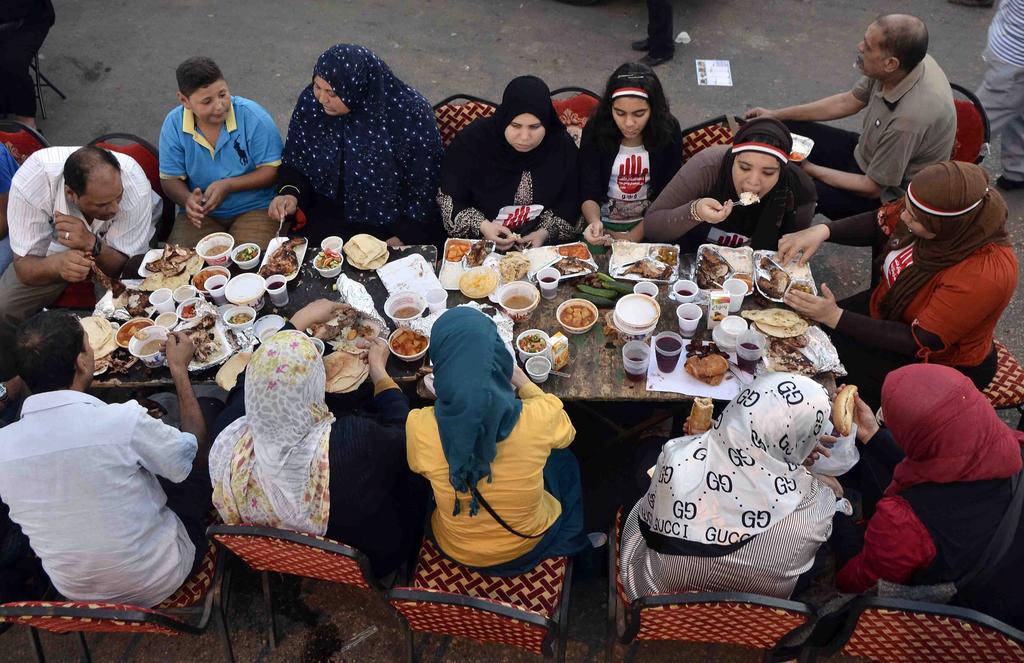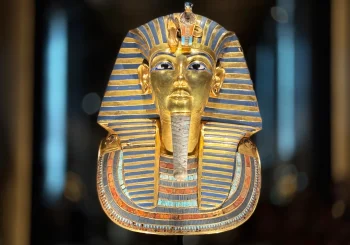Egypt, a country with deep traditions and a rich culture, is at a turning point as it faces the challenges of modern life.
While the quest for personal and societal well-being has long been a central focus, the pursuit of happiness has become increasingly intertwined with the accumulation of material wealth – a dynamic that has left many people questioning the true nature of fulfillment.
A 2023 article on Medium highlights that while many prioritize the pursuit of wealth, it often does not satisfy our deeper need for contentment.
Philosophers like Seneca and Epicurus argue that true satisfaction comes from self-sufficiency, which fosters confidence, independence, and resilience. Epicurus highlights that self-sufficiency leads to freedom and inner peace, advocating for a simple, moderate lifestyle that avoids excess and unnecessary desires. Ultimately, cultivating self-sufficiency allows individuals to meet their needs without relying on external wealth, leading to lasting happiness and contentment.
According to Martin Seligman, American psychologist, educator, and author of self-help books, the gap between visible success and true happiness has led to a growing recognition that happiness is not just about making money. He suggests that well-being encompasses more than financial wealth, including factors like relationships, meaning, and personal growth.
At the heart of this dilemma lies the complex relationship between wealth, mental health, and the societal priorities that shape the Egyptian experience of happiness.
The High Tides of Consumer Culture
In Egypt, societal pressures demand financial success as a primary measure of worth, which can lead individuals to prioritize material accumulation over mental health and meaningful relationships. A common example can be seen in marriage, where when a man proposes to a woman, her parents often first consider his material wealth and what he can provide first.
The pressure creates a tension: while wealth can provide security and comfort, it does not necessarily lead to fulfillment or happiness. As people chase financial stability, they may neglect their mental health and community connections, ultimately resulting in a cycle of dissatisfaction and stress.
As the country has increasingly embraced a more consumerist culture, the focus on accumulating possessions and status symbols has, in many ways, overshadowed the more mental aspects of well-being. The proof can be seen in the rapid growth of shopping malls and luxury brands in Egypt, as well as the rise of consumer finance options like credit cards, which enable individuals to purchase high-end goods.
Primarily, this vicious cycle occurs due to economic changes which Egypt has undergone over the past few decades, leading to increased consumerism.
In an interview with Al Ahram, Samia Khedr, a sociologist suggested that “Unfortunately, many people do not have enough awareness of their spending patterns,” noting that consumerism has become prevalent in Egyptian society.
In that same article, Medhat Nafie, a professor of finance, claimed that “the spread of consumer finance and credit cards that enable people to buy almost anything in installments has given many limited-income people the illusion of wealth, increasing the consumer finance in Egypt.”
Additionally, cultural shifts in media and advertising trends in Egypt often promote consumer culture, emphasizing wealth and material possessions as indicators of success. In Egypt, this emphasis is particularly evident, as local media often showcases affluent lifestyles, reinforcing the idea that success is closely tied to material wealth and status.
In Egypt, cultural shifts in media and advertising have fostered a consumer culture that emphasizes wealth and material assets — such as fancy cars and houses in gated communities — as indicators of success.
Popular television dramas (such as Grand Hotel, 2016) often feature wealthy characters living luxurious lifestyles, while social media influencers showcase lavish living and promote high-end brands, encouraging followers to aspire to similar standards.
Marketing campaigns for luxury goods, such as cars and fashion, reinforce this message by linking happiness with material success. Collectively, these influences shape societal values and individual aspirations, prioritizing material wealth over traditional measures of success.

Resource Gaps in Egypt’s Mental Health Services
Mental health, in particular, has often been overlooked due to stigma and a lack of access to resources, which hinder open discussions and the availability of support systems. As a result, accessibility and affordability issues exist in care services besides therapy.
Michael Elnemais, a consultant psychiatrist and a lecturer at the committee of Continuous Medical Education, addresses the significant challenges facing mental health services in Egypt, highlighting that mental disorders are prevalent but often go untreated, particularly in low-income communities.
He notes that 75 percent of individuals in rural areas lack access to necessary care due to underfunding and inadequate policy attention mainly due to a lack of integration of mental health into primary care, insufficient training for healthcare providers, and a concentration of resources in a few large psychiatric hospitals.
Additionally, in 2023, a research paper titled “Mental Illness Stigma, Help Seeking, and Public Health Programs,” conducted by Claire Henderson, Sara Evans-Lacko, and Graham Thornicroft, suggested that globally, over 70 percent of people with mental illness do not receive treatment from healthcare professionals due to the lack of resources for mental health.
Such statistics are worrying because research shows that psychological factors like emotional strength, social connections, and having a sense of purpose are important for a person’s happiness and life satisfaction.
Moreover, the rapid changes and pressures of modern life—evident in the swift adoption of technology such as smartphones and social media—have transformed how people communicate and interact, fostering a more fast-paced society.
The Impact of Urban Migration on Community and Social Networks in Egypt
Rapid urbanization in Egypt has led to significant migration from rural areas to urban centers like Cairo, with the World Bank reporting substantial population growth in these cities.
Cairo’s population has surged to over 20 million residents, reflecting an influx of people seeking better economic opportunities in industries and services. Many migrate for these job prospects and to escape rural poverty and limited access to resources.
This shift disrupts traditional community structures as families migrate to cities in search of better opportunities, leading to the dispersal of families and the weakening of social networks.
A 2019 study by Carrie Henning-Smith at the University of Minnesota Twin Cities shows that urban dwellers often experience feelings of isolation compared to those in close-knit rural communities.

The Need for a Holistic Approach to Well-Being in Egypt
Egypt currently ranks 127 according to the World Happiness Index. Thus, to address this complex challenge, a fundamental shift in societal priorities and the very definition of happiness is needed.
Rather than viewing happiness solely through the lens of material wealth and economic success, there should be a growing call to embrace a more holistic understanding of well-being – one that encompasses mental health, interpersonal relationships, and a deeper connection to one’s cultural heritage and values.
Cultural psychologists, such as Japan’s Shinobu Kitayama, prove that different cultures prioritize various aspects of well-being.
To gain insights from Egyptians, we spoke with Omar Mazen, a 29-year-old accountant.
He expressed that no matter how hard one pushes to accumulate wealth, there will always be a sense of happiness that remains elusive.
“As the saying goes, it’s not about the destination but the journey. For me, true wealth lies in being mentally healthy and socially aware of the people who genuinely care about me. That kind of wealth surpasses any amount of money I could make.”
Mazen was not alone in conveying this sentiment.
Fakhry Halim, a 25-year-old engineer, emphasized that the pursuit of wealth and materialism inevitably reaches a point where it fails to bring happiness.
“Happiness is found in living a simple life—a life that allows you to sleep peacefully without overthinking your income or the things you ‘need’ to buy. It’s a trap; the more you focus on wealth and material possessions, the less happy you become,” he said.
In collectivist cultures, such as Egypt’s, interpersonal relationships and community ties are often more significant to happiness than individual wealth.
However, as societal pressures and modern influences promote consumer culture and individualism, this foundational aspect of collectivism can be challenged.

People may find themselves prioritizing financial success over community engagement, which can weaken social bonds. Despite this shift, many Egyptians still value family connections and communal support, indicating that elements of collectivism persist alongside emerging individualistic trends.
Such shifts in perspective could pave the way for a more balanced and fulfilling approach to personal and societal development.
By investing in mental health resources, promoting work-life balance, and fostering a greater appreciation for the intangible aspects of life, the Egyptian government can empower its citizens to cultivate a more sustainable and meaningful form of happiness.
Moreover, this recalibration of priorities could have far-reaching societal implications, potentially strengthening community bonds, reducing social inequalities, and ultimately creating a more harmonious and resilient Egyptian society.
Consecutively, studies have shown that countries that invest in mental health resources see improvements in overall public health and productivity. For example, the World Health Organization (WHO) reports that every money invested in mental health treatment can yield a return of improved health and productivity.
Additionally, research from various international organizations, including the International Labour Organization (ILO), indicates that promoting work-life balance leads to increased employee satisfaction, lower stress levels, and higher productivity.
As the country continues to evolve, the search for true happiness must extend beyond the confines of material wealth and economic success. It is in embracing the multifaceted nature of well-being that Egyptians can then unlock the true potential of its citizens and create a future where prosperity and fulfillment go hand in hand.
The opinions and ideas expressed in this article are the author’s and do not necessarily reflect the views of Egyptian Streets’ editorial team.
To submit an opinion article, please email [email protected].







Comments (0)